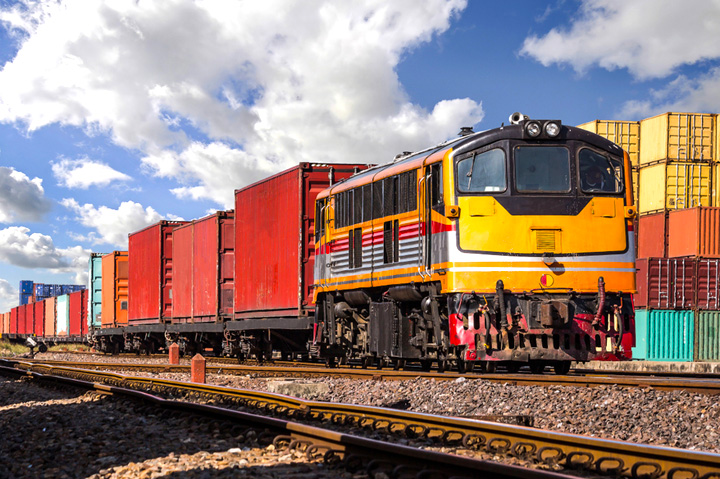News July 18, 2022
Contentious Railroad Worker Contract Talks Threaten Supply Chain Disruption
A strike or lockout is possible. Still, President Joe Biden can prevent that by appointing a special board to help the stalled negotiations along.
Update: President Joe Biden on Sunday named the members of an emergency board tasked with helping resolve disputes between freight rail carriers and their unions, according to the White House.
More labor union unrest is threatening to further disrupt supply chains – concerning news for the promotional products market and other industries that rely on moving goods into, out of, and around the United States.
About 115,000 U.S.-based railroad workers who are essential to transporting everything from food and automobiles to promo products to destinations throughout the nation are reportedly poised to strike.

The threat comes as negotiations over a new contract for the workers between their unions and large freight railroads, like Union Pacific and BNSF, have hit an impasse after more than two years of talks.
Still, President Joe Biden has the potential to prevent a work stoppage if, before Monday 12:01 a.m. EDT, he appoints a Presidential Emergency Board (PEB).
Should the board be enacted, a strike or lockout would be prohibited for 60 days per the federal law that governs railroad contracts. The board would offer suggestions that could serve as the foundation for a contract settlement.
Industry groups have urged Biden to appoint the board to stave off the likely repercussions of a work stoppage, which could include everything from higher inflation (already at 40-year highs) and an inability for companies to re-inventory adequately.
Heading into the weekend of July 16/17th, Biden was still reportedly considering whether or not to appoint the PEB. He was widely expected to do so, but the official move had not yet been made as of this July 15th writing.
If the PEB’s potential recommendations fail to lead to an agreement after the 60 days, federal authorities would still have leverage to prevent a strike or lockout. Congress, for instance, could impose terms on railroads and unions to ensure they keep moving freight.
Still, how things actually play out remains to be seen, and the unions feel pushed to the brink.
The week of July 10, for instance, the Brotherhood of Locomotive Engineers and Trainmen stated that more than 99% of its members voted to authorize a strike if a deal can’t be reached.
Workers say they haven’t had a raise since 2019. Pay rates amid soaring inflation, health insurance costs, working hours, reported large staffing cutbacks by railroads, and railroad proposals to reduce train crews from two people to one are all contentious issues in the negotiations.
The railroad consternation comes amid continuing rocky negotiations between the International Longshore and Warehouse Union (ILWU), representing 22,000 workers at 29 essential West Coast ports, and the Pacific Maritime Association (PMA), representing employers.
A contract for the port workers expired July 1st, but both sides have pledged to keep import and export cargo moving. A strike, lockout or slowdown at the ports could also fuel inflation and make it much more difficult for retailers, promo product suppliers and others to receive and stock their products for sale. The ports rely on railroads – as well as truckers – to move goods to their domestic destinations.
Speaking of those truckers: About 70,000 truck owner-operators in California are facing uncertainty after the Golden State’s Assembly Bill 5 has started applying to them. The bill requires workers to be considered employees, entitled to benefits, unless they can satisfy a three-part test to be considered independent contractors.
Trucker owner-operators overwhelmingly oppose the law and feel it can hurt their businesses. There were demonstrations against it this week at the pivotal California ports of Los Angeles, Oakland and Long Beach.
